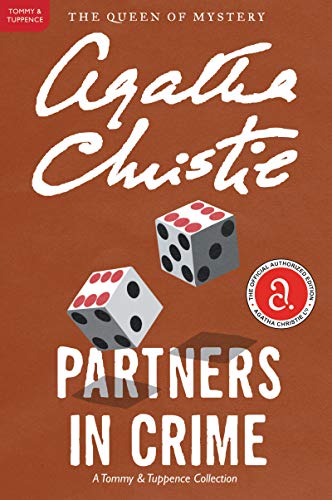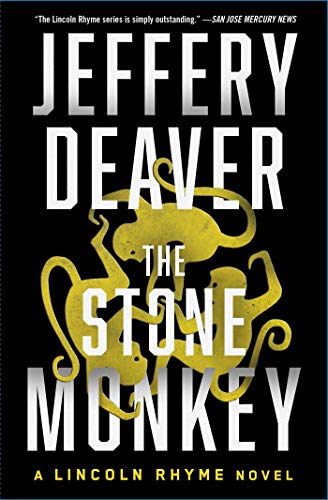On Friday we announced that John Hampel’s Glass House 51 is our Thriller of the Week and the sponsor of thousands of great bargains in the thriller, mystery, and suspense categories: over 200 free titles, over 600 quality 99-centers, and thousands more that you can read for free through the Kindle Lending Library if you have Amazon Prime!
Now we’re back to offer our weekly free Thriller excerpt:
Glass House 51 is the insanely amazing adventure—or misadventure—of a lifetime, of one Richard Clayborne, a hard-charging young marketing maverick at gigantic AlphaBanc’s San Francisco branch.
Hyper-ambitious Richard has been offered an intriguing assignment: Get online via NEXSX and make e-time with the lovely, brilliant (and doomed) Chicagoan Christin Darrow. All to set a trap for the reclusive—and very deadly—computer genius, Norman Dunne, aka the Gnome.
Why? Three lovely young women dead in the streets of Chicago. And the Gnome, a former AlphaBanc employee, is the main suspect. But there just might be another AlphaBanc agenda in the works. . . .
Little does clueless Richard know what is in store for him and the innocent Christin: a tangled, twisted journey through the AlphaBanc underground, but by the time he realizes it, they’re in too deep to get out.
Glass House 51 transports us to the future present where information on an individual can be so comprehensive, so insidiously granular and minute, that people can become information “specimens” kept by perverse “collectors” . . . like butterflies in a virtual bottle.
Glass House 51 is humbly dedicated to George Orwell and Aldous Huxley, massive contributors to the collective conscience of our modern age. They saw it coming; they saw it first; they warned us. We learned nothing.
And here, for your reading pleasure, is our free excerpt:
Prologue
It is the back door to the brave new world. A tremendous gateway. Leonard Huxley’s eyes reflect the glow of his heated computer screen as he prowls the soft silicon bowels of AlphaBanc, the largest financial services company in the world, jumping from file to amazing file. This last one is really fabulous, one of a collection of video clips obtained from God knows where, labeled NSXMD71109, depicting an attractive scantily-clad young woman in red high heels holding a glass of wine and traipsing around what appears to be her living room, obviously enjoying herself.
“F-fantastic stuff,” Huxley softly stutters, licking his lips and banging the top of his ancient battered monitor to try to jump these jangling chartreuse and violet images back into a semblance of real colors. Regretfully, he closes the clip and yawns, glances at the time: two a.m. He’s been at it for four hours straight, but he can’t stop now, he’s finding almost too much to comprehend: electronic acres of bank records, credit reports, medical archives, criminal records, phone call listings, video and audio files, all elegantly sorted by social security number, DMV code, surname, maiden name, credit card numbers . . . dozens of primary keys, relentless unending columns of people’s frantic lives—incredible, amazing, and strangely evil. Geoff was absolutely right.
It is even more than Huxley had imagined. Ever since Geoff had hinted to him what was behind the silicon curtain, Huxley had begged him for a way in, an ID and a password. And finally, in the last encrypted email Geoff Robeson had sent, he had attached them. It was the gift of gifts, but the decoded letter, which Huxley feels compelled to open again this late hour, is unsettling:
Leonard: I fear I’m in trouble. I confronted Bergstrom this morning and he was, as I predicted, extremely upset with me. I finally told him that our current activities at AlphaBanc are clearly beyond the pale and that we must reconsider our plans. He was so violently angry that I walked into the door jamb on my way out, something I have never done before. So, I must confess, aware as I am of the magnitude of the dangerous game they are playing, I now fear for my life. Until later, my anarchistic friend.
— Geoff.
Huxley closes the message again, wonders exactly how much trouble his friend might be in. He has never known him to exaggerate, one of the reasons he loves to correspond with him; the man is a straight shooter. So many others out there are frauds and liars but Geoff Robeson is just who he appears to be, a fifty-four-year-old economist at AlphaBanc in Chicago, a caring, intelligent, blind black man, and most importantly, a great friend. And he, Huxley, is pleased to be actually himself online, a poor twenty-year-old computer science dropout who takes great pleasure in trying to refute Robeson’s thoughtful observations of a world that both of them have really never yet seen.
It is only one week later that Huxley wanders by a newspaper vendor on Lincoln Avenue, idly scans the front page of a Chicago Sun-Times and finds: SIGHTLESS MAN PLUNGES 64 FLOORS. The story that follows describes the windows removed for maintenance at One AlphaBanc Center and the firm’s chief economist (described by AlphaBanc employees as seeming to be depressed lately) who must have wandered past the barriers to take the fateful, weightless step.
J-just like that Tarot card, The Fool. Huxley fights back tears, trying not to believe what he reads. He should have tried to do something; he knew that Geoff might be in great danger. He knew of the ruthlessness with which AlphaBanc pursued its objectives, fuel for many encrypted tirades to his blind mentor which just might have persuaded him to take the dangerous steps he had into Karl Bergstrom’s office and thence to an evil free fall . . . the fool.
He begins sobbing softly on the street corner. His great good friend . . . gone. In the end, nothing more than one of AlphaBanc’s pathetic doomed fools. . . .
Chapter One
Richard Clayborne can’t seem to breathe.
Who could do something like this?
The photograph embedded within the email he has opened is vivid and disturbing, centered mutely, outrageously, on his computer screen.
Oh God . . . there must be some mistake, Clayborne thinks as he forces himself to examine more closely the message and the repugnant image. But it is specifically addressed to him alone at alphabanc.us.west and worse yet, contains what seems to be a warning, just for him.
He can’t believe it. Just when everything was beginning to go so well for him again—actually, spectacularly well.
“Richard, don’t you have a meeting right now?”
“What?” Clayborne jumps, exhales hugely, looks up from his monitor.
Mary Petrovic, one of the members of his marketing team, is standing in his office. “Don’t you have a teleconference now with Chicago?”
“Oh! Omigod!” He checks his watch. “You’re right!”
“Are-are you okay, Richard? You look kind of sick—”
“I’m fine, I’m fine . . .” he mutters, quickly clearing the picture before she can see it. He takes a deep breath, momentarily closes his eyes, wishes he could dismiss the image from his mind as easily as it disappeared from the screen.
“Are you sure? You don’t look very—”
“I’m okay!” he nearly shouts, immediately regretting his anger. It’s not her fault he’s upset. He pushes away from his desk and grabs his suit coat. This is definitely not a good omen. The most important meeting of his career—maybe his entire life—and he almost missed it.
Breathing hard, Clayborne blinks in the daylight that assaults him as he hurries down the windowed corridor on the thirty-fifth floor of AlphaBanc West, the San Francisco branch of AlphaBanc Financial Services, the largest banking, consumer credit, and marketing services firm in the world. It’s still hazy this time of the morning, but considerably brighter than the dim staircase he has run up from two floors below, rather than wait for the elevators.
Now I really don’t feel good about this, he thinks as he lopes down the hallway, the disturbing email adding a quantum jolt to the nagging bad feeling he’s had ever since he was offered this special assignment.
“A tiny bit of subterfuge,” was how it had been described to him by Alan Sturgis, AlphaBanc’s senior vice-president of corporate marketing who had flown in from Chicago to personally pitch him on the project. Which immediately impressed Clayborne with just how big a deal this really is to them.
All to catch a Gnome.
“Er, did you say, Gnome?” he had asked Sturgis, sitting across from him in his small office hugging one of the interior walls in AlphaBanc West’s prestigious marketing department.
The chair squeaked as Sturgis leaned back before answering him. He was a big thickset man with a florid face and a balding head surrounded by a reddish scruff of hair on the sides. He panted slightly as he talked, his voluminous dark blue pinstripe suit quaking as he shifted repeatedly in the small chair, trying to get comfortable. “Well, that’s what he calls himself—on the Web. The Gnome. His real name is Norman Dunne. But he takes great pride in being ‘the Gnome,’ believe me. He’s a computer genius, and we know that for a fact because he used to work for us. Not all that long ago, actually.”
“No kidding? Why did he leave?”
Sturgis sighed. “It’s a long story, not worth getting into now, but it certainly hasn’t hurt his efforts to break into our computer systems. He knows every weakness, every flaw. I’m embarrassed to say that he’s recently—hacked, is the appropriate term I’ve been told, into our corporate databases and stolen quite a bit of valuable client information.”
“What did he take?”
“Sorry,” Sturgis smiled at him, “can’t tell you that. It’s classified. But I think you can understand, Richard, how important it is that news of this crime is never made public. AlphaBanc is recognized as an ultra-secure institution, particularly our McCarthy operation, and if word of this got out it could cause us tremendous damage. It would take years and cost us a fortune in PR to regain our customers’ trust.”
Clayborne nodded. He understood. AlphaBanc’s reputation for security is unparalleled in the financial world.
“So, you can see why it’s so important that we track him down before he gets a chance to peddle this information—and stop him before he can do it again. And you can also see why we’re not immediately involving the police in this matter. At least not until we’ve positively located him, when we can be assured of a swift, hopefully, very low-key arrest.”
“I understand. I assume then that he’s . . . hard to find?”
“Oh, yes, exactly,” Sturgis snorted. “That’s the whole point. He’s gone completely underground. Goes by any number of fake identities when he does happen to surface. Even with modern electronic means and our surveillance, er, what we call sentinel, databases, he’s impossible to locate. He knows all the tricks. You see, Richard,” Sturgis leaned heavily over the desktop and lowered his voice, “that’s exactly why we need your help. Instead of us trying to find him, we’re going to get him to come to us. . . .”
As Clayborne rushes onward to his teleconference he reconsiders the assignment: could he possibly back out? It seems unthinkable now; he’s already accepted and this high-visibility meeting with AlphaBanc’s top executives is partially his reward for signing on. How would it look if he just quit? Besides, it’s the opportunity of a lifetime, one he’s been waiting for since he first came here six years ago. He can’t give it all up just because of one errant email.
“Whoa! Richard, watch out, man!” says someone jumping out of his way, a blur in his peripheral vision.
Clayborne stops short, realizes he has almost run into a coworker carrying a stack of printed reports. “Sorry, Stevie, I guess I wasn’t watching—”
“You looked like you were in another world, man.”
“Yeah, got a lot on my mind, I guess. And a teleconference in the library—right now. Gotta run!” he says, still startled by the glimpse he had caught of himself in the corridor windows as they almost collided. Beyond the basic good looks he had inherited from his dynamic father, the supersalesman Bruce Clayborne—square jaw, keen blue eyes and the unruly skein of chestnut hair on top—he looked frazzled. Certainly not the image he wants to project at this meeting.
He shrugs it off, tries to smooth his hair as he sprints into the empty library, buttons his coat and fidgets with the tie he has chosen to wear for the meeting, the two hundred dollar Stefano Ricci, his best, and runs over to the big monitor on the wall. He powers it on and flops down in the red leather chair facing the small camera perched above the unit. He leans forward, picks up a thin keyboard from a side table and logs onto the system. A series of numbers immediately scroll across the screen. He wipes sweat from his forehead and waits for the response from Chicago, world headquarters of AlphaBanc Financial Services, or AFS, as proclaimed by the ubiquitous golden insignia centered on the startup screen of every computer in the enormous AlphaBanc network.
He slowly shakes his head as he glances around the small sumptuous library, its walnut paneling softly illuminated by green glowing banker’s lamps on each table. Here at last. He still can’t believe his luck. At thirty-one he is a senior marketing manager and one of the project leaders of AlphaBanc’s wildly successful “Biggest Best Friend” campaign. Obviously a very good place to be in the organization for in only a few minutes he’s about to meet the big man himself, the one at the top of the gigantic AlphaBanc pyramid of 350,000 employees, Karl Bergstrom.
Hurry up and wait, he thinks as he sees his name added to a long queue on the screen. He pushes his fingers through his hair, wonders if he’s worrying for nothing. Maybe the message was just a hoax, or some kind of sick joke. His part in the scheme is quite simple, anyway, a little harmless online chit-chat with some woman in Chicago, nothing more. Piece of cake.
Of course, he’s got to assume a fake Web identity and make contact through NEXSX, the dubiously popular Internet adult conferencing service—but in terms of the greater good of the mission, really not a big deal. AlphaBanc, he’s sure, has everything worked out.
Or have they?
He wonders again if he should just tell them to get someone else. Or tell them about the ominous email? His stomach tightens; it’s an excruciating decision. He’s worked so long and hard to get to this moment. Of all the possible candidates available to them, they’ve asked him to help them out. No one else.
Maybe it was all the blood. He’s always been squeamish about blood and that photograph of what seemed to be a police crime scene had been virtually drenched in it. Who was that poor young woman? Who could have sent it? The From address, which had seemed real enough, he was sure now was undoubtedly bogus, untraceable, but the brief message that accompanied it seems to have found its mark, him:
This is what they are hiding, Richard. This is what has happened to the others. It might happen again. Think about it.
Chapter Two
In a small northside Chicago apartment, a grimy, smoke-blackened window separates the outside world from the Gnome’s lair, a darkened room crammed to the ceiling with humming computers and networked electronic gear. The window is always closed and shaded, but this particular fall morning it has been propped open in an attempt to refresh the heated atmosphere of the electrified space behind it.
The outside air is quite cool, however, and it is not long before Norman Dunne, a slight, balding man sitting before an array of computer monitors, pulls his worn sweater closer and squints in the unaccustomed brightness. He gets up from his swivel chair and shuts the window, draws the shade. The room darkens once again, lit only by glowing monitors and a multitude of red, green, and gold indicator lights—just the way he likes it.
He turns his attention back to the screens, stops to scrutinize one containing a series of online accounts he has been monitoring. He moves his mouse, clicks, and enters the private realm of a young woman logged onto the NEXSX site. A few moments later he smiles and enlarges a particular window.
She’s wearing red today, and not very much of that.
Dunne licks his lips and taps on the keyboard to more precisely calibrate the screen color.
A study in scarlet. How very lovely.
He grins. He’s touched. She’s choreographed this sweet and minimalist video ballet just for him. The unbelievably beautiful and absolutely unattainable—in the real world—Katrina Radnovsky, has done it for him. Or, actually, for the glib, gorgeous, blue-eyed muscular hunk she thinks he is.
Dunne sighs. Anyway, I’ve got her now.
An amazing catch, and right here in Chicago. Perfect . . . absolutely perfect, muses Dunne as he idly browses the massive amount of data he has gathered on her: email and phone logs, credit card numbers and pins, summaries of her financial transactions, cross-referenced listings of all known family and friends, business associates, suspected lovers, past and present . . . and recently, the lab test results of her latest physical exam. He knows who she talks to, what she says, where she shops, what she buys . . . who she is. But in the end it was she, herself, as it always was, who let him all the way in.
Dunne smiles as he scrolls through her file, thinks that this is a very good specimen indeed. One of the finest in his collection. The only bothersome thing is that she now wants to meet him, in real life.
Damn . . . not again.
He gazes at her incredible image and smiles bitterly. He’s simply too good at being who he is not. Too suave, too convincing. Just too damned good. It’s a thrilling and satisfying game, but it always comes down to this, a looming real-world encounter that the diminutive computer genius simply cannot pull off.
As always, he frets, mutters to himself, wrings his hands. Time’s run out with her. She’s forcing his hand and he’s out of excuses. He’ll have to be cruel, present a challenge. Truth or dare. There’s nothing else he can do.
He sighs again. It’s time now to be someone else, someone much, much better than himself, and she’s expecting him. He reaches toward the keyboard and is suddenly startled by a beeping sound and a message flashing red on his screen—one, actually, that he has been waiting for.
He quickly opens a window on another monitor. Aha.
It seems that some jokers have been repeatedly hacking into the new AVAVISNET air traffic control system at O’Hare airport, one of the world’s busiest, just down the road. He’s been remotely monitoring it since he first suspected intruders, and it appears that they’re in there again.
He chuckles softly. These clowns don’t realize that they’re playing with fire; in a very short time thousands of innocent lives will be in jeopardy. There’s a lesson here that they will have to learn. From the master himself.
Chapter Three
“So the girl will be in danger?”
“Considerably,” says Tobor “Toby” O’Brian, nervously kneading his long pale fingers. “I’m afraid there’s no way to avoid it. But, of course, it’s a relatively small price to pay.”
“And Clayborne, too?”
“Yes, yes . . . him, too. What can I say? It’s such a dangerous game.”
O’Brian, director of information systems at AlphaBanc’s enormous McCarthy complex, is speaking to the senior vice president of finance, Edward Van Arp. They are sitting on very soft, very expensive leather chairs in the offices of Karl Bergstrom, president and CEO of AlphaBanc Financial Services. The long walnut table before them is aligned with floor-to-ceiling windows that enclose three walls of the huge office. From the sixty-fourth floor of One AlphaBanc Center, the view is usually stupendous, with the Hancock building, Water Tower Place, and the broad blue expanse of Lake Michigan to the east, and to the west, the complicated gridworks of metro Chicago, sprawling into the great rolling plains of the Midwest.
Today, however, an unusually cool morning in early September, the upper floors of the building are enclosed in fog, and O’Brian and Van Arp float in a vast Olympian whiteness that seems to insulate them from the rest of the gritty business world that grinds below them, far away.
“Toby, Edward, I’m sorry I kept you waiting.” Bergstrom strides through the open double doors that separate his office from the anteroom of his secretaries. He is a tall athletic man with perfectly trimmed silver hair and icy gray eyes that immediately lock on his fellow executives. “Al Sturgis won’t be able to join us; he had something to take care of in New York.
But the others should be here in a few minutes.”
“Okay, Karl,” says O’Brian. “We’re ready.”
“Good. Let me refuel on java here and we’ll get started,” he says, absently fiddling with his heavy gold cufflinks engraved with the AFS logo. “Darryl’s going to give us some sort of super systems demo, I gather.”
“Oh, what’s that about?” asks Van Arp.
“I’m not really sure. Something that only another propeller-head could love,” says Bergstrom, casting a wicked grin toward O’Brian. “You know anything more about this, Toby?”
“Well, actually I do—”
“All he told me was that it was an alternative solution to our problem with Dunne—and that it would knock my socks off!” Bergstrom continues. “Well, I damn well hope so, because we could use a solution about now,” he adds with a sudden frown as he walks out.
“So what’s going on?” Van Arp asks O’Brian. Van Arp, a shorter, less perfected version of Bergstrom, has thinning gray hair and watery blue eyes, upon which he wears contact lenses enhanced with a slight tint which he thinks no one notices. But everyone does, especially O’Brian, a pale lanky man with a dense thatch of wavy dark brown hair, who is used to keeping a keen eye on his computer systems, alert for the slightest blip, blink, or other incongruity in the cyber-status quo.
“Well,” O’Brian sighs deeply, “Gates thinks that we might be able to get along now without Norman Dunne.”
“You’re kidding. So the plan with the girl, Darrow, and with Clayborne in San Francisco is a no-go?”
“No, not at all. But suppose our little trap doesn’t work? Gates is going to give us a demonstration of some super system penetration—supposedly as good as Dunne’s.”
Van Arp sniffs. “Well, all I’ve heard is that Norman Dunne is a genius, absolutely irreplaceable.”
“Well, yes, that’s my opinion, too.”
“What’s Gates think he’s going to do?”
“I don’t want to spoil the surprise. All I can tell you is that I’m not too thrilled with it; I just hope he can pull it off.”
Van Arp looks intently at O’Brian. “Do you think we could actually go it alone? Without Dunne?”
O’Brian shrugs, intertwines his fingers. “With the extremely critical nature and magnitude of this, er, project, and the time constraints we’ve got, I don’t see how it would be possible. No one has ever been as good as he was at compromising supposedly secure systems. And with his, ah, indiscretions, of late—”
“The killings.”
“Yes. Have you seen the pictures of the crime scenes?”
“No, I always seem to be out of town when—”
“Well, here then,” says O’Brian, reaching down to open a briefcase he has under the table. He brings up a thin folder, pulls out several color photographs, pushes them over to Van Arp. The photo on top depicts a horrific scene, the blood-smeared head and upper torso of what had once been an attractive young woman, her throat viciously slashed open.
“Oh my God . . . oh God . . . so this is what he is doing?”
“Yes. That one is frightful. Incredibly bloody . . . but the ones of the garroting are almost worse, I think . . .”
“Oh Jesus. These are disgusting.” He shoves the photos back at O’Brian. “We’ve got to stop him. Now.”
“Yes, you see, that’s why we’ve got to find him and bring him in as soon as possible.”
“I agree completely. The man’s out of control.”
“And yet,” O’Brian smiles ruefully, “we need him now like we’ve never needed him before.”
Chapter Four
The executives have been joined by Darryl Gates, senior vice president and CIO of AlphaBanc’s formidable information technologies area, and Maury Rhodden, a rumpled little fellow who works for Gates as a senior systems engineer. They are all seated around the end of the long table in Bergstrom’s office watching the CEO fitfully pace around the room before he takes his seat at its head. “Okay, let’s go,” he says. “We might as well get started.”
“Say, Karl, wasn’t Pierre going to be here today?” asks Van Arp.
“Well, he said he was going to try to make it—”
“I’m here, I’m here . . .” calls a voice from across the room.
They all turn to see a tall, thin, somewhat stooped elderly man in a black suit fastidiously close the office doors behind him. He looks up and smiles. “Sorry I’m late.”
“Well, Pierre,” Bergstrom smiles, “you know we couldn’t start without you.”
“Bah!” says Dr. Lefebre, adjusting the steel-rimmed glasses perched upon his long Gallic nose. “Sure, sure you couldn’t . . .” he mumbles as he shuffles over to the table.
Bergstrom stands and pulls a chair out for the old man, helps him get seated. “Okay, now we’re ready,” he says, looking over at his CIO.
“All right, Karl,” says Gates, nervously fingering his new electronic wand, a sleek pencil-size remote unit that controls practically everything in the room. “Before we proceed with our little demonstration I want to report to everyone how things are shaping up with our communications grid.”
Gates points the remote toward the back wall and a large dark panel suddenly illuminates and a color animation sequence commences, of the earth surrounded by a spheroidal grid of silvery satellites.
“Uh, is that the latest model, Darryl?” O’Brian asks.
“Hmm? Oh, yes, this is the 5000 series,” he shrugs, flicking the unit, which sends a red laser pointer to the screen. “So . . . now that Datacomsats 28 and 29 are in orbit, the North American communications network is ninety-two percent complete, with the addition of the northern and southern states of Mexico, including, of course, all of Mexico City. But the infrastructure down there is still pretty feeble, and we mostly consider this a future opportunity. Anyway, this will enable us to bring data into the network nearly instantaneously, without having the two to three day wait we had previously.”
“Was it really that long?” asks Van Arp.
“Sure, sometimes even longer. But with the new mainframe we’ve installed here, we’re able to get almost as much processing power as we had previously, when we relied solely on McCarthy.”
“Oh? I didn’t think there was any comparison,” says Van Arp.
“Well there’s really not,” O’Brian chimes in. “For our statistical modeling routines, there’s nothing, actually, that comes close. For sheer horsepower,” O’Brian smiles, finding it difficult to hide the thrill he gets talking about the gigantic supercomputer installed at his McCarthy complex, “there’s nothing on the planet that can compare to the processing power of—the Source.”
Gates winces at the latest name O’Brian has chosen to call the big machine. But maybe that’s an improvement; it used to be the Magic Mountain.
Karl Bergstrom tilts slowly back in his chair, smiles, says softly, “And we’re actually getting there, Grand Unification,” apparently to himself, although everyone at the table hears him and becomes attentive, as they always do whenever the president speaks.
They all understand that he—and each of them—has a right to be proud. Nearly ten years of concentrated effort finally coming to an end. As if basking in their shared thoughts, Bergstrom relaxes somewhat. At sixty-one, he is showing his age, the long days and nights taking their toll around his eyes, but he is still handsome, tall, deeply tanned; he exudes pure CEO—the only thing, with these looks, at his age, he could possibly be in the world. And this upcoming project with Norman Dunne, he and everyone in the room knows, is going to be the capstone of his career. And yet—as they also all know—if all goes well, no one, other than themselves and a small cadre of expendables, will ever know of it.
“Grand Unification . . . bah!” sputters Pierre Lefebre. “Our petty bastardization of Albert Einstein’s name for his noble concept, his great dream. And we are doing this!”
Everyone turns toward Dr. Lefebre and at the same time stifles a smile. Lefebre is nearly eighty, easily the eldest of their group, and is also indisputably the most intellectual among them.
“Well, Pierre, you were in the meeting when we decided upon this project name. In fact,” Bergstrom smiles cagily, “as I recall, you might have come up with it.”
“Me? I—well, perhaps. But now I see all too clearly the dark side of this thing. And it troubles me, Karl. More so than ever before. Einstein—you know I met him once, many years ago at Princeton, of course you do—searched for universal truth, and we are searching for, for what? Wretched, miserable, little beastly details about people’s lives—trivia! And that is not any sort of truth or enlightenment, no beauty to it, none at all—just the opposite, in fact: ugly, sad minutiae, very sad indeed!”
The room falls silent.
Bergstrom grimaces, shakes his head. “Now, Pierre, you know as well as the rest of us what the fruits of our labors will be. Don’t forget that all those, what you call details, in the aggregations that we will be able to produce for the first time in the history of the world, I might add, are extremely valuable, for marketing, for political polling, for crime prevention and the very honorable fight against terrorism—”
“And for governmental domestic spying, corporate espionage, the tracking of humans like they were just so many inventory items . . . the potential abuses are mind-boggling!” Lefebre snaps back.
Bergstrom sighs. “Pierre, you certainly know how to put everything in perspective.” Bergstrom is really the only one who can lock horns with Lefebre. They are very old friends—Lefebre had been his chief mentor in the firm—and Bergstrom knows that whenever the old man goes on like this it is best to simply change the subject. “Well, I happen to think that it’s quite a noble—and extremely profitable—goal. And of course some parts of the project will be more, ah, enjoyable, than others. Now, has everyone seen the dossier on Christin Darrow? She’s a senior financial analyst in mergers, originally from the Seattle branch. There’s a cutie, hey?”
Everyone perks up immediately, including Dr. Lefebre.
“Oh God, yes. That looker in M&A, good choice.”
“She’s the one, all right.”
“Ed always gets the best ones, anyway.”
Van Arp grins. “Well, I understand she’s essential to the, er, plan . . . unfortunately.”
With the addition of this last word, everyone’s smile dissolves, including Van Arp’s.
Bergstrom picks it up again. “Well, it’s nearly eleven. Are we ready to proceed with this demonstration? Darryl?”
“Karl,” says Gates, “we’ve got Richard Clayborne on the line right now. AlphaBanc West. Maybe we should first—”
“Yes,” sighs Bergstrom. “Let’s get him out of the way. Oh, by the way, Zara is going to be out there with him, with Clayborne. She’s heading up this phase of the project.”
“Oh boy,” someone groans.
Bergstrom grins, “Well, we all know she’s damn good, er, at this sort of thing.”
“Amen,” grunts Van Arp.
Everyone chuckles. Gates points the wand across the room and the second panel illuminates, turning deep blue with the golden AFS logo displayed in its center. After a few seconds the logo vanishes, replaced in the upper left hand corner with the legend: SF ACCESS . . . PLEASE WAIT.
“Hmm,” O’Brian mutters, “the satellite link appears to be a little slow this morning . . .”
Just then, the legend appears: SF INTERLINK – ACTIVE, a quick sequence of numbers, the date and military time, then another blink and a menu of approximately twenty names is displayed. The name: Clayborne, R.W., is blinking in green.
Gates flicks his wand again. The screen goes completely black, then reappears, presenting a smiling well-dressed young man sitting attentively before a large bookcase in what everyone in the room recognizes as the library and conference room of AlphaBanc’s San Francisco branch.
Bergstrom clears his throat and speaks, “Clayborne, how are you today?”
“Fine, sir. Thank you.”
“Good. How’s the weather out there?”
“Oh, cool. Foggy today.”
“Here, too. Now, Richard, I guess you know everyone in this room, except perhaps Dr. Lefebre and—”
“Actually, sir, your side of the video link isn’t up.”
“It isn’t? What—?”
Gates and O’Brian immediately lean over to Bergstrom, Gates tapping the mute button on the wand. “Forgot to mention it, Karl. We thought it might be best that he not see us all together on this end. It’s not exactly a normal piece of business he’s about to undertake. This NEXSX thing.”
“Oh, yes. Well, good idea, then.”
Gates taps the mute button again and nods.
“Clayborne,” says Bergstrom, “can you still hear me?”
“Yes sir.”
“The link is temporarily down here, son. Some technical difficulties.”
“Yes sir, I understand.”
“Now, I am told that, aside from your MBA, you hold an undergraduate degree in psychology from the University of Wisconsin. Is that correct?”
“Yes sir. I developed an interest in marketing, the psychology of it, during my time at Wisconsin and went on to pursue it at Northwestern.”
“So, besides your help in setting up this . . . little scheme to locate Dunne, you also understand, on a psychological level, what we want you to do, communications-wise, with Darrow?”
“Yes sir. I do.”
“And you understand that the young woman might be in some danger. And possibly even yourself?”
“Yes sir, although I was assured that you would be constantly monitoring—”
“Oh yes, yes.” Bergstrom glances over at O’Brian and Gates. “Of course, we’ll be on top of everything, but the man we’re after is a genius, a-a demented genius—and that’s why we have to be so careful.”
“I’ve been briefed, Mr. Bergstrom.”
“Good, good. Well, then I guess that’s all we have here. You are to initiate contact fairly soon now, I am told.”
“Yes sir, I’m ready.”
“Good. Well, we’ll sign off here. Good luck, Clayborne.”
“Thank you, sir. Good-bye.”
The red light below the camera lens in San Francisco blinks out and Clayborne loosens his tie, shakes his head. “Damn this old system!” he mutters. “I didn’t even get to see them . . . but at least they could see me.” Which he considers much more important, but still frustrating. He gently whacks the side of the monitor as he gets up. A piece of junk. There always seems to be some kind of problem with it. He’s about to power it off when he hears Karl Bergstrom’s voice coming through the speakers: “Do you think Clayborne’s in any real danger?”
“Not really. The Gnome only goes after women, you know, lovely young women,” says a voice he thinks might be O’Brian’s. Clayborne looks up at the unit’s camera; the little red light is still out. It appears they can’t see him, and most likely have no idea he is still on the line.
“Like our Miss Darrow.” Bergstrom’s voice is quieter now.
“Yes, our little Miss Christin.”
“Bait. Gnome-bait. Jesus, it’s ugly.”
“Does Clayborne know about the murders?”
“No. They’ve been in the news, of course. Locally, here. Unsolved. No one knows that Dunne is involved but us.”
Oho. Murders, thinks Clayborne. Now the evil message he had received made some sense. That bloody photo of a young woman was the victim of a slasher. Who now apparently seems to be Norman Dunne, the Gnome. A gruesome serial killer? This is what they are hiding from him? He continues to listen.
“So Clayborne knows nothing about them? The murders?”
“That’s right. We only told him that Dunne has stolen some of our data and that he might be dangerous. Not how dangerous. Clayborne’s PERSPROF indicates he might be a person of some integrity. We think he’s presently quite loyal, but we don’t want him to get weird on us. Go outside or something.”
Clayborne’s ears burn. Might be a person of integrity? Well, maybe they’d better take another look at their idiot PERSPROF, which is of course AlphaBanc’s infamous statistically correct personality profile whom every AlphaBanc employee has lurking within their online personnel file. And why would he go “outside?” Where exactly is that?
It’s extremely risky, but in the most daring decision he has made thus far in his carefully cultivated career, he decides to continue eavesdropping. He’s just got to know what’s going on.














